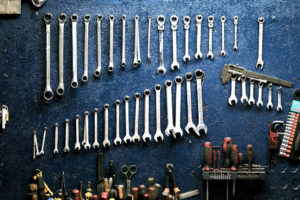Buying a used car can be a stressful process, but it doesn’t have to be. Follow our tips below and learn how to buy a used car; we promise you’ll soon be zooming down the highway toward your next adventure!
1. Do Your Research
Because buying a vehicle is one of the biggest purchases in your life, it almost goes without saying that you should get some insight into the model and make of the vehicle you’ll be buying. This is especially true if you’ll be spending a lot of time in your vehicle of choice. Check out consumer reports, online forums for your model of car, review sites, videos, etc. Each of these resources can give you a handle on the pros and cons of the car you’re looking to buy.
Also, be sure to look into if your particular model has any outstanding product recalls. If so, make sure to ask if the issue has been fixed. You don’t want to be putting yourself in any danger by buying an unsafe vehicle.
In addition, get an insurance quote for the car you’ve been eyeing. It might not be worth it if you’re going to pay through the roof on insurance each month. Important to note that you need the serial number of the used vehicle in order to get a quote. While some dealers/sellers may be hesitant to give out that info, they’re legally required to do so if you ask for it.
2. Check Out All Brands For The Best Deal
You might be eyeing up some of the most popular brands like Ford or Honda, but know that those brands may end up being the most expensive. Consider makes like Kia or Suzuki which also have great vehicles and may be cheaper with better features for your price range. It’s good to familiarize yourself with all brands and get an idea of their strengths and weaknesses.

3. Go For A Test Drive
There’s no better way to know if the car you want is really what you want without driving it. But how do you get access to do so? Head to a dealership, ask to try out the model(s) you’re interested in, and take the car for a spin. Not only will you find out really quickly if the car is comfortable and large enough for your needs, you can try out all the features that come with the car to see what you’d like, and what you don’t need or want.
Ask to go out for around half an hour to test out potholes (structural integrity) highway speeds, how the transmission shifts (or if the clutch doesn’t seem to be catching), all car systems like A/C and heating, and to make sure there aren’t any noises that seem amiss in the car.
Bear in mind the dealerships will generally have the newest model of the cars so if you’re looking for an older model explicitly you should look into what you might be giving up.
4. Find Out What Your Car Is Worth
This is crucial. The last thing you want to do is find out later that you got scammed for the value of your car. There are plenty of online tools to find out the value of your car with some being more accurate than others (make sure you’re on the Canadian site either way). Another good way to see the current prices of what people are selling cars for are just to browse classified sites like Craigslist, Kijiji, even Facebook Marketplace, or your local area’s Facebook Buy and Sell page.
5. Ask Around
It can absolutely be worth your time to let friends and family know you’re in the market for a vehicle. They might be trying to sell a vehicle themselves or know someone who is selling. You might even be able to get a deal from them just by being connected. Not only that, but you’re also likely to know more about the history of their vehicle giving you an immediate idea of what might need to be fixed or not.

6. Get A Collision Report
You want to know if the car your purchasing was involved in an accident. Thankfully there are sites that cater to that exact need. CarProof, CarFax, and AutoCheck all recognize rebuilt or salvaged vehicles using a vehicle’s VIN. Be aware though, they only cover accident history when the owner’s insurance was involved. Many collisions aren’t reported for insurance. While the reports can be helpful, they aren’t the end-all-be-all so keep that in mind when looking them over.
7. Get The Facts
Another incredibly important piece is knowing what’s been broken, repaired, and/or maintained as it can help in not only deciding if this is the car you want, but also what deficiencies you might have to repair yourself. This can help you negotiate the best price and discover if the owner performed regular maintenance, when they last did an oil change, and whether they’ve added any modifications to the car like third party audio systems.
If you’re buying from a dealership, you can usually ask for a pre-purchase inspection from an independent mechanic. This is incredibly helpful (and can provide significant peace-of-mind) to determine the cosmetic, mechanical, and safety condition of a car. A mechanic can flag any potential issues and pinpoint current problems.

8. The Personal Inspection
So you’ve got as far as seeing your (potentially) future car, but now it’s time to make sure you’re getting what you’re going to pay for. Check for any scratches or dents on the exterior. Watch for any new paint on wheel-well liners, door seals, and mufflers—clear signs of accident repairs. Transmission fluid should be bright red or reddish brown. If the fluid is any darker, there could be problems. Check the undercarriage of the car for any signs of rust. Oil that resembles a frothy milkshake could mean a blown head gasket or a more serious issue. Check all indicators, hazards, high beams, and brake lights for any dead bulbs. While not fully comprehensive, this should give you an idea of key signs to look for.
9. Have A Budget In Mind
No matter what car you choose, it’s important to have a clear idea of how much you’re willing to spend. On the flip side don’t expect a humongous discount (it is a used car after all). You need to manage your expectations, have a clear idea of what the car you’re interested in is worth, and drive a hard bargain (as much as possible). If there are any repairs that need to be done, do a quick Google search to see what an average cost is and factor that in to your negotiations. Also, bear in mind that you can almost always get a better deal by financing through the dealership as they receive a commission from the lending institution.
10. Get Some Professional Help
If you weren’t able to get an inspection from the dealership or you’ve purchased a car through a private sale, it’s never a bad idea to take it to an independent mechanic for a look-over. They’ll also be able to give you unbiased info about your car like what the most likely part to break down is, or if that brand/make of car has a common issue. They’ll also be able to tell you things you might’ve missed in your own inspection when you bought the car.
